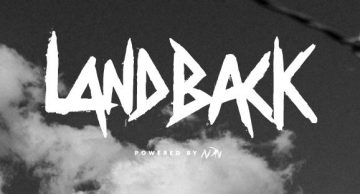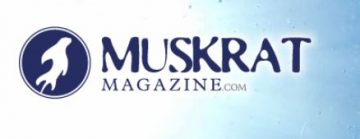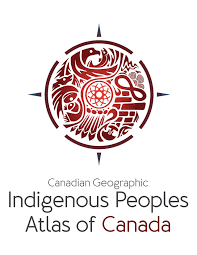Landback: Dedicated to building the collective power of Indigenous Peoples while fostering a world built on justice + equity for all people and the planet – Addressing Indigenous sovereignty and self-determination. Click here, or on the picture above.
Muskrat magazine addresses Indigenous Cultural Reclamation, engaging Indigenous arts protocols and dealing with appropriation. Click here, or on the picture above.
Chelsea Vowel’s 2016 book, Indigenous Writes: A Guide to First Nations, Métis, and Inuit Issues in Canada, is an excellent (and witty) resource for those wanting to learn more about Indigenous issues in Canada. Drawing on her studies in both education and law, as well as her Métis identity, Vowel brings the same savvy to her online resource. Click here, or on the picture above.
Indigenous Foundations is a great place to start for those who need a great basic resource on topics from Indigenous identity, culture, and land claims, particularly in British Columbia. Click here, or on the picture above.
The Library and Archives of Canada have developed this excellent resource for helping you determine whether or not a source that contains Indigenous content is acceptable for classroom use. They offer a checklist of considerations for assessing resources, including issues of authorship, and community involvement. Click here, or on the picture above.
The Indigenous Corporate Training website is an excellent source for Business Ed educator, but offers a wide range of resources for working effectively with Indigenous people. In fact, a single post about the Indian Act become so popular that is was turned into the wildly popular 2019 book by Bob Joseph, 21 Things You Didn’t Know about the Indian Act. Click here, or on the picture above.
The National Centre for Collaboration of Indigenous Education (NCCIE) offers a rich array of Indigenous Education resources, including a language section and reconciliation section. Click here, or on the picture above.
Canadian Geographic offers a wealth of online resources that invite visitors into learning about Reconciliation, First Nations, Inuit, and Métis peoples. Click here, or on the picture above.
At Active History, Skylee-Storm Hogan and Krista McCracken, with Andrea Eidinger, offer insightful advice on inviting Indigenous Elders, Knowledge Keepers, and community members into your classroom. Click here, or on the picture above.
Join Dr. Jan Hare, Associate Dean of Indigenous Education at UBC, for the MOOC “Reconciliation through Education.” The MOOC is a six-part self-paced course that focuses on how to meaningfully include Indigenous voices and content in your day to day teaching practice. Subscribe to the mailing list and be amongst the first to be notified when the next course will run. Click here, or on the picture above.
Sign up for “Indigenous Canada,” a twelve-week online course offered by the Faculty of Native Studies at the University of Alberta. This course explores the historical conditions that have lead to the contemporary realities of Indigenous peoples in Canada, and takes a critical perspective on Indigenous-settler relations. Click here, or on the picture above.
|











